Yoga! Hey there, fellow yogis! Have you ever thought about how what you eat can really make a difference in your yoga practice? It’s not just about bending and stretching; it’s also about fueling your body the right way. Think of your body as your yoga temple. Just like you wouldn’t bring clutter into a temple, you wouldn’t want to bring the wrong foods into your body before and after your practice. The right nutrition can totally change the game – it can give you the energy to hold those poses longer, help your muscles recover faster, and even increase your flexibility.
Let’s dive into the world of yoga nutrition. It’s all about finding that sweet spot – foods that give you enough energy but don’t weigh you down before you hit the mat, and foods that help your body recover and rejuvenate after you’ve rolled up your mat. Whether you’re a morning yoga person or someone who unrolls their mat in the evening, what you eat can help you get the most out of your practice. And it’s not just about the physical benefits; the right foods can also help keep your mind clear and focused, enhancing that mind-body connection that yoga is all about.
So, are you ready to find out which foods can take your yoga practice to the next level? Let’s get started on this culinary journey that complements your journey on the mat! 🧘♀️🍌🥗
Best Foods to Eat Before Yoga
A. Bananas: The Perfect Pre-Yoga Snack
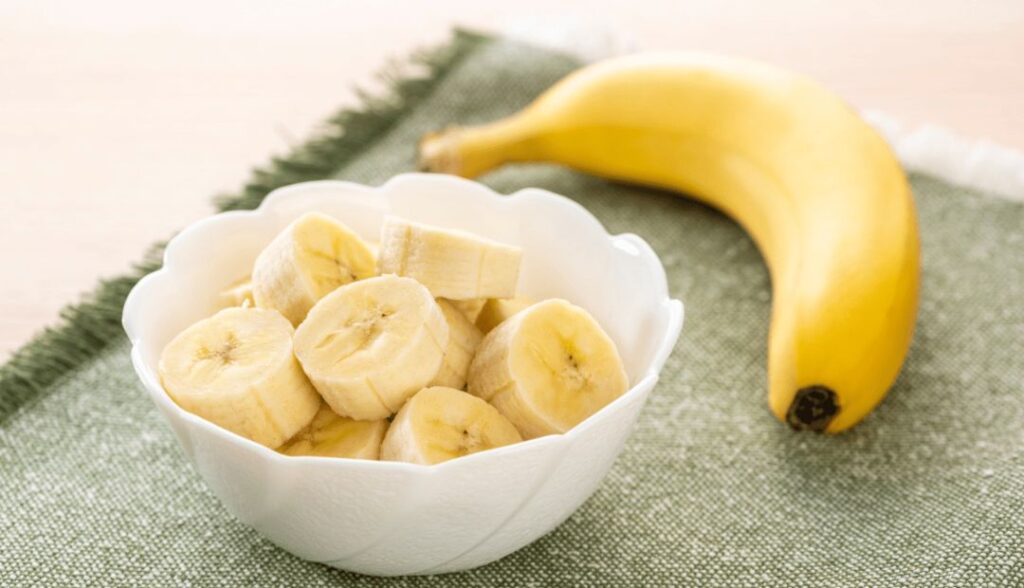
Let’s kick things off with bananas, your new best friend for pre-yoga snacking. Why bananas, you ask? Well, they’re like nature’s own energy bar. Packed with natural sugars and potassium, bananas give you a quick energy boost without making you feel too full or sluggish. Plus, that potassium is a superstar for preventing muscle cramps, which is super handy when you’re trying to nail those challenging poses.
B. Yogurt: Light and Nourishing

Next up, we’ve got yogurt. If you’re looking for something that’s light on the stomach yet nourishing, yogurt is the way to go. It’s got a good mix of protein and carbs, which means it can give you a nice little energy boost without weighing you down. And the best part? The probiotics in yogurt are great for your gut health, so you’re not just fueling your yoga session, you’re also doing your digestive system a favor.
C. Oats: Sustained Energy for Longer Sessions
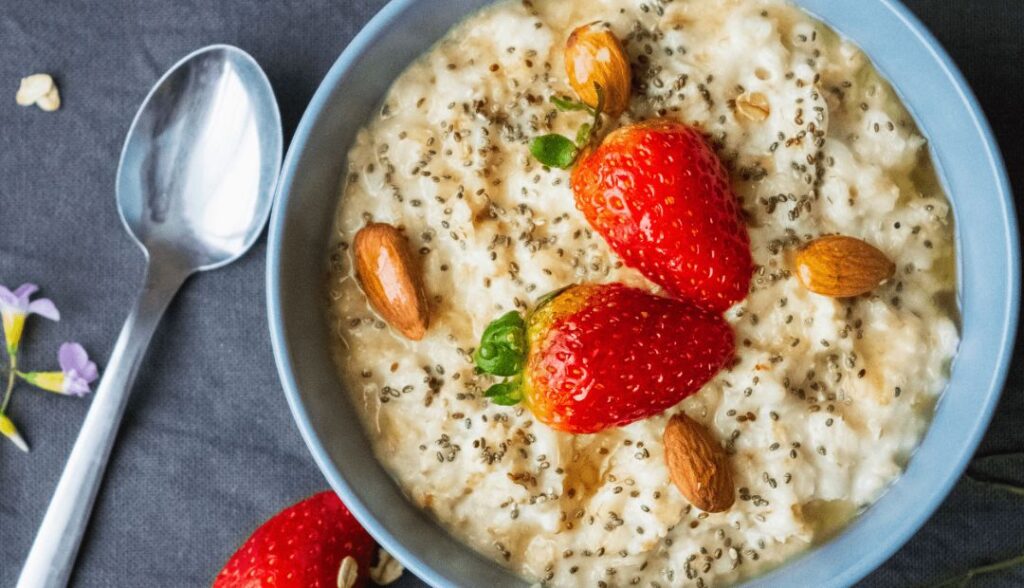
Oats are another fantastic option for a pre-yoga meal, especially if you’re gearing up for a longer session. They’re a low-glycemic food, which means they provide a steady release of energy into your bloodstream. This is great for keeping your energy levels consistent throughout your practice, so you don’t hit a wall halfway through.
D. Nuts: A Nutrient-Packed Power Boost
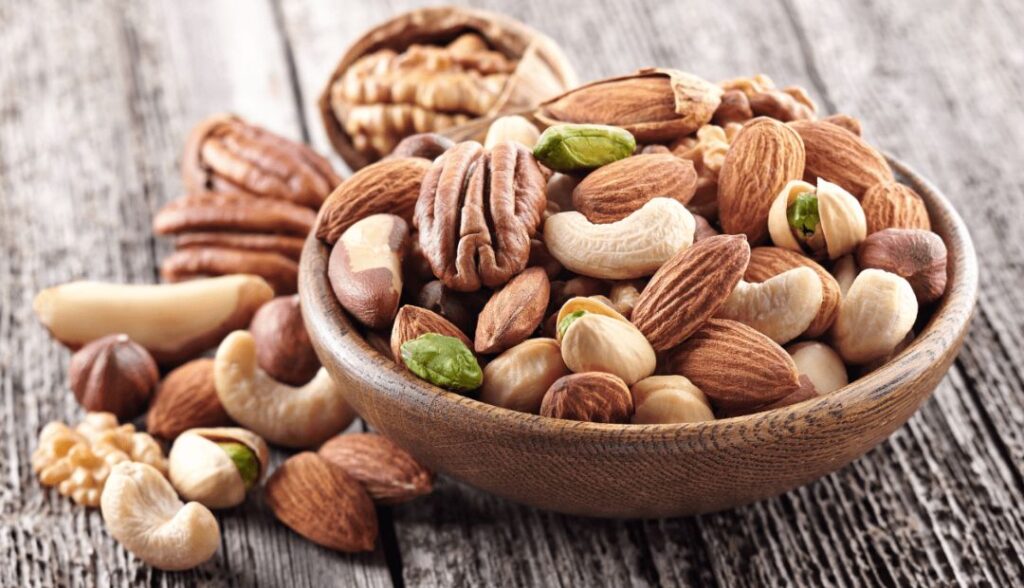
Don’t overlook nuts as a quick pre-yoga snack. Almonds, walnuts, or even a handful of mixed nuts can give you a great balance of protein, healthy fats, and energy. Plus, they’re rich in magnesium, a mineral that plays a crucial role in muscle function and energy production. Just a small handful can help you feel energized and ready to flow.
E. Fruit Smoothies: Hydrating and Energizing
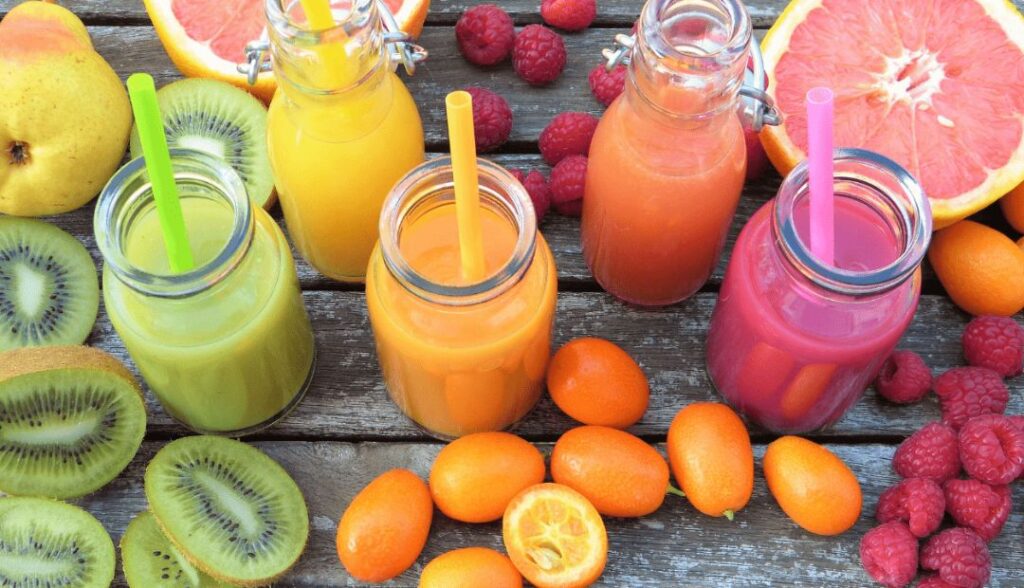
Last but not least, let’s talk about fruit smoothies. They’re like a double win for your yoga practice. Not only do they provide quick, easily digestible nutrients, but they’re also hydrating. You can throw in your favorite fruits, maybe some greens, and a base like water or almond milk. It’s a refreshing way to fuel up and hydrate before you start your sun salutations.
So, there you have it – a roundup of some fantastic foods to eat before your yoga practice. Remember, it’s all about giving your body what it needs to perform at its best on the mat. Happy eating and happy practicing! 🧘♀️🍌🥣🥜🍓
Best Foods to Eat After Yoga
A. Protein Shake: Quick Muscle Recovery

After a good yoga session, your muscles have worked hard and need some TLC. Enter the protein shake. Why a protein shake, you ask? It’s a quick and convenient way to get high-quality protein into your body right after your practice. This helps with muscle repair and growth, especially if you’ve been doing a lot of strength-building asanas. Plus, you can whip it up in no time and customize it with your favorite flavors.
B. Quinoa: The Complete Protein
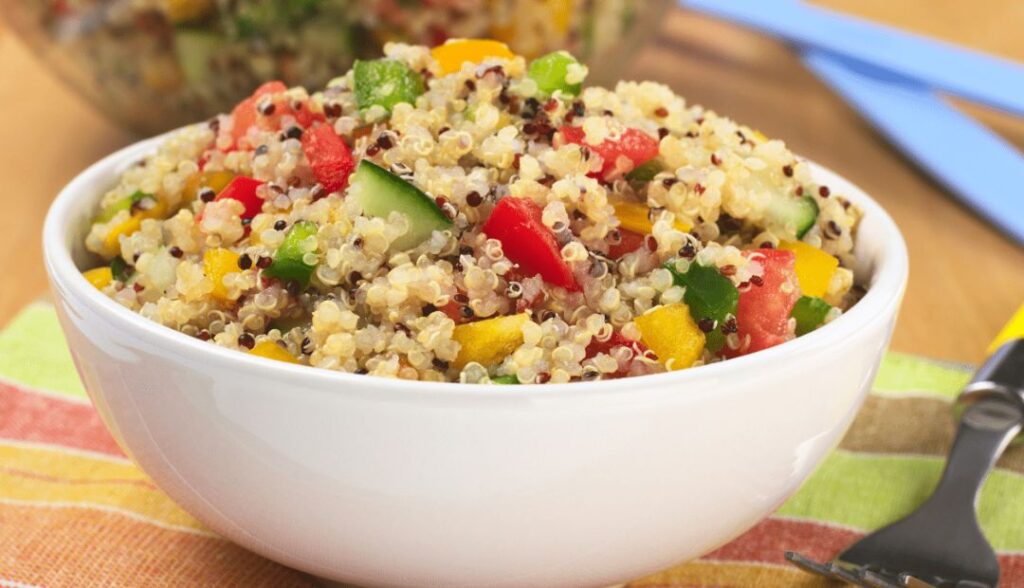
Quinoa is like the superhero of post-yoga foods. It’s a complete protein, meaning it contains all nine essential amino acids your body needs for muscle recovery. It’s also gluten-free and packed with complex carbohydrates, making it perfect for replenishing your energy stores after a strenuous session. Cook it up as a savory dish or mix it into a salad – it’s versatile and delicious!
C. Sweet Potatoes: Carb Up for Recovery
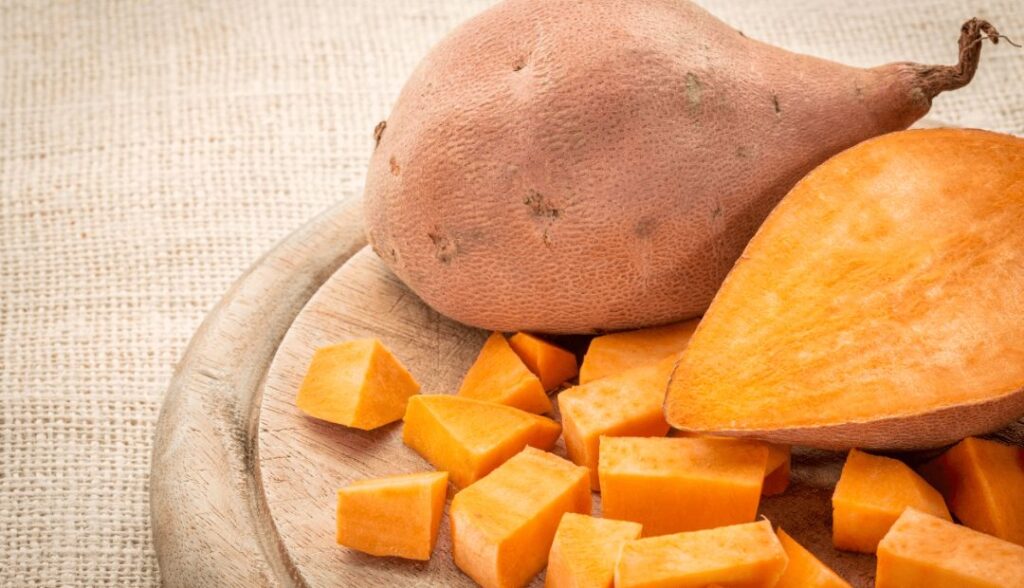
Sweet potatoes are not just tasty; they’re also fantastic for post-yoga recovery. They’re rich in complex carbohydrates and fiber, which help refill your body’s glycogen (energy) stores. Plus, they’re loaded with vitamins and minerals that support muscle recovery and overall health. Roast them, mash them, or turn them into fries – they’re a treat however you prepare them.
D. Leafy Greens: Nutrient-Dense Recovery Food
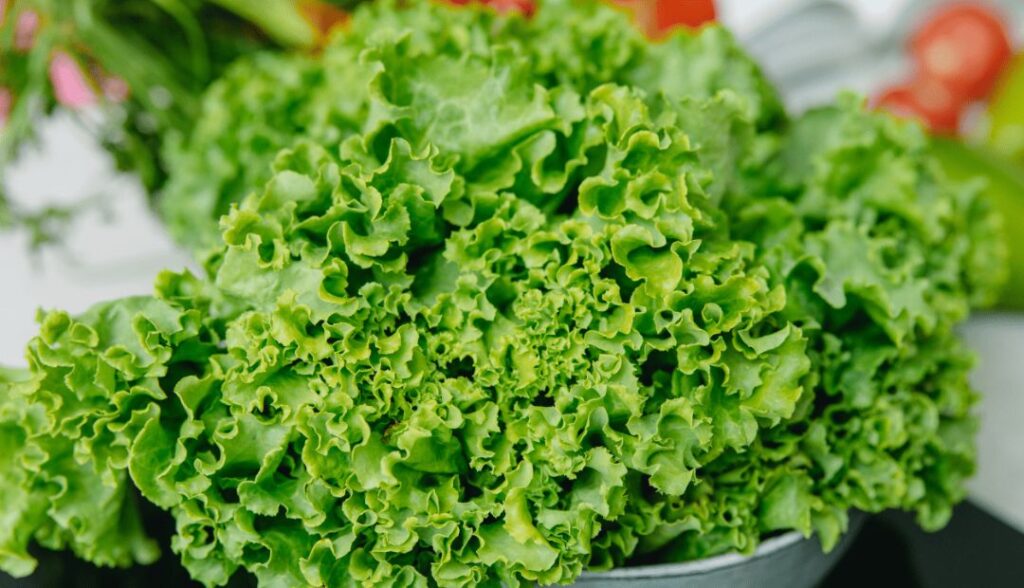
Leafy greens like spinach, kale, and chard are packed with vitamins, minerals, and antioxidants, making them perfect for post-yoga nourishment. They help reduce inflammation in your body, which can be especially beneficial after an intense yoga workout. Toss them in a salad, sauté them, or blend them into a smoothie – they’re versatile and super healthy.
E. Berries: Antioxidant Powerhouses
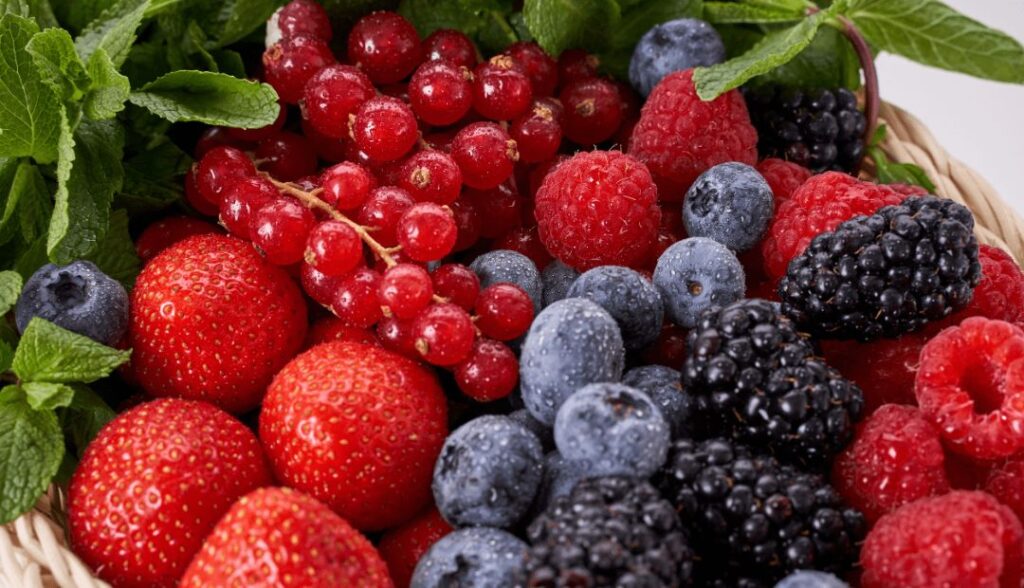
Last but not least, let’s talk about berries. Berries are little antioxidant powerhouses, great for fighting inflammation and aiding muscle recovery. They’re also low in calories but high in flavor, making them a perfect sweet treat after your yoga practice. Mix them into your yogurt, oatmeal, or just enjoy a bowl of fresh, juicy berries.
So there you have it – some of the best foods to refuel your body after yoga. Remember, taking care of your body after practice is just as important as the practice itself. These foods will help you recover faster, feel better, and get ready for your next yoga session. Enjoy! 🧘♀️🥤🍚🍠🥬🍓
Hydration Tips for Yoga Practitioners

A. The Importance of Hydration Before and After Yoga
Let’s not forget about one of the most crucial aspects of any fitness routine, including yoga: staying hydrated. Hydration is key, whether you’re doing gentle stretches or a more vigorous vinyasa flow. Before yoga, being well-hydrated helps ensure that your muscles are flexible and less prone to injuries. It also aids in maintaining your concentration and keeping your energy levels up. After yoga, rehydrating is essential for recovery, helping to replenish the fluids lost through sweat and to keep your body functioning optimally.
B. Benefits of Water and Electrolyte-Rich Drinks
Now, what should you be drinking? Plain old water is usually your best bet. It’s perfect for ensuring you’re well-hydrated without feeling bloated or heavy. If you’re engaging in a particularly intense or long yoga session, you might want to consider a drink with electrolytes, like coconut water. Electrolytes, including sodium, potassium, and magnesium, are vital for muscle function and energy. They help regulate nerve function, hydrate your body, balance blood acidity and pressure, and rebuild damaged tissue. Coconut water is a great natural source of electrolytes and can be a refreshing post-yoga drink.
C. Tips for Staying Hydrated
Here are some quick hydration tips:
- Before Yoga: Drink a glass of water an hour before your practice to ensure you’re hydrated but not uncomfortably full.
- During Yoga: Keep a bottle of water nearby, especially if you’re practicing hot yoga or a vigorous flow. Take small sips as needed.
- After Yoga: Rehydrate with water or an electrolyte-rich drink. Listen to your body; if you’re feeling particularly drained, you might need more fluids.
Remember, staying hydrated is crucial for a successful yoga practice and for your overall health. So, keep that water bottle handy and make hydration a key part of your yoga routine! 💧🧘♀️🥥
Conclusion
A. Recap of the Top Foods for Yoga Practitioners
As we wrap up our exploration of the best foods to eat before and after yoga, it’s clear that what we consume plays a pivotal role in how we experience our practice. From the energy-boosting bananas and oats that prepare you for the mat, to the protein-rich shakes and quinoa that aid in post-yoga recovery, each food item brings its unique benefits. Sweet potatoes and leafy greens replenish and nourish your body, while berries provide that antioxidant boost to keep you feeling rejuvenated.
B. The Harmony of Nutrition and Yoga Practice
Remember, yoga is more than just a physical practice; it’s a holistic approach to well-being that includes nutrition. By choosing foods that align with your yoga practice, you’re not only enhancing your physical performance but also nurturing your body in a more profound sense. The harmony between what you eat and how you move on the mat can significantly impact your overall health and yoga journey.
C. Final Thoughts on a Balanced Yoga Lifestyle
As you continue with your yoga practice, consider these nutritional tips as integral elements of your routine. A balanced diet, coupled with mindful eating, can elevate your yoga experience, contributing to greater strength, flexibility, and inner peace. So, embrace this holistic approach to yoga, where nourishment and movement go hand in hand, leading you towards a healthier, more balanced life.
And remember, the journey of yoga is as much about listening to your body’s needs as it is about challenging its limits. May your path be filled with mindful choices, both on and off the mat. Namaste! 🙏🧘♀️🍏🥗🌿
References
As we conclude our guide on the best foods to eat before and after yoga, let’s acknowledge the wealth of resources available for those who wish to delve deeper into the intersection of nutrition and yoga. Whether you’re a seasoned yogi or just starting out, these references can provide valuable insights and further information to enhance your practice and overall well-being.
A. Additional Resources for Further Reading on Nutrition and Yoga
- Books:
- “Nourishing Traditions” by Sally Fallon – Offers insights into traditional diets and their impact on health.
- “The Yoga Body Diet” by Kristen Schultz Dollard and John Douillard – Explores how to adapt your diet based on your yoga practice and dosha type.
- “Eat, Taste, Heal: An Ayurvedic Cookbook for Modern Living” by Thomas Yarema, Daniel Rhoda, and Johnny Brannigan – Provides an introduction to Ayurvedic principles of eating for health and balance.
- Online Articles and Blogs:
- Yoga Journal’s Nutrition section – Features a variety of articles on how different foods can support your yoga practice.
- MindBodyGreen Nutrition – Offers a range of articles on holistic health and nutrition, including tips specifically for yogis.
- Research Studies:
- Various studies available on platforms like PubMed and Google Scholar that explore the relationship between nutrition, yoga, and overall health.
B. Acknowledgments to Nutrition and Yoga Experts
A special thanks to the numerous nutritionists, dietitians, yoga instructors, and wellness experts who have shared their knowledge and expertise. Their contributions have been invaluable in understanding the role of nutrition in enhancing yoga practice and overall health.
C. Community and Personal Experiences
Lastly, recognition of the global yoga community – a diverse and supportive network of practitioners who share their experiences and insights. Personal stories and advice from fellow yogis can be incredibly inspiring and helpful in one’s yoga and nutritional journey.
Remember, the journey of integrating yoga with the right nutrition is a personal one, enriched by a variety of experiences and teachings. These resources are just a starting point for your exploration. May your yoga practice and nutritional choices bring you balance, health, and inner peace. Namaste. 📚🌿🧘♀️🍇



